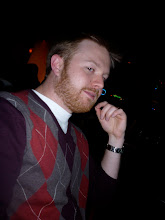Part twelve in the ongoing series.
To respond to the Easter attacks, President Nixon resumed bombing of North Vietnam in April. In doing so, Nixon made a statement that the U.S. would not fold in the peace talks by being bullied. In July peace talks resumed with the Northern government, and by October Nixon’s top advisor, Henry Kissenger, stated, “Peace is at hand.” While this statement ended up being true, and with fewer American troops in Vietnam every day, the end of the war came for the fighting men, it would, however, not be as easy as signing a treaty. The bombings continued throughout the fall and winter of 1972, after Nixon won re-election in November. In January 1973, the peace talks came to a close, with the U.S. agreeing to pull completely out of Vietnam, knowing that their ally would eventually fall to the North.
The U.S. government did not have to admit defeat in the war because of the nature of the agreement, but defeat was obvious among those who had served in Vietnam. As Charles E. Neu put it, “The war had seared the consciousness of an entire generation, and altered the mood of the nation.” For those who made it home after the active American part of the war was over, life was very different than before. All the sacrifices that the soldiers had made went unappreciated and many resented them because of the reminder they gave of America’s first military loss. Future Senator John Kerry said of his homecoming, “You begin to see a lot of instant insanity and brutality that I don’t think anybody prepared you for, and then one day...you land back in the United States of America. And nobody cares and nobody wants you to be in uniform.” It is sad to think that the men who had done all they were asked to do got little to no recognition for their efforts.
The “warriors were blamed for the war,” as well as the government who made them fight, but it was not fair to lump those two groups together when assigning blame. Even after a majority of the men came home, the war was still being misunderstood by the government and the public who could not grasp the realities of what Vietnam was like. “The people who had been my closest friends really knew nothing about Vietnam,” said Marine James Hebron, “They were only interested in what the war was like in terms of their preconceptions of what war was about.” The only viable option was for the men who had fought was to educate the world about how wrong the Vietnam war was, and how unprepared the U.S.A. was to fight it.
Vietnam was not like World War II; it did not have a clear objective or an obvious enemy. In many ways the veterans became the enemy to the nation as they tried to make sense of the mess that Vietnam had made of the country.




No comments:
Post a Comment